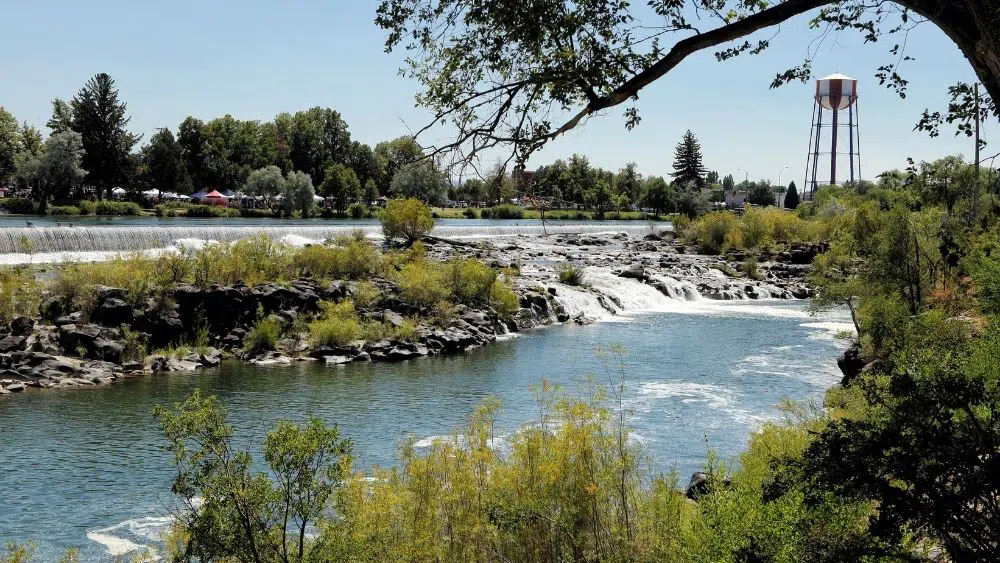
Precious stone mountain ranges, aquamarine rivers, and lush green hillsides – it’s no wonder why Idaho, packed with hundreds of minerals and natural resources, got its nickname as the Gem State. Are you a homebuyer thinking of purchasing your dream home in Idaho?
While you may be saving for a down payment, it won’t be the only out-of-pocket cost you’ll be on the hook for. Homebuyers need to budget and prepare to pay for closing costs, which can amount to thousands of dollars.
In a nutshell, closing costs are a blanket term, encompassing all the fees homebuyers need to pay on closing day before they receive the keys and deed to their new property. It takes a village to buy a home: homebuyers must pay their lender to set up their mortgage, their appraiser and home inspector for scoping out the property, and various insurance providers, for example.
As a rule of thumb, closing costs typically amount to 2 to 5 percent of the home’s purchase price, paid alongside the down payment. You’re in for one expensive day at closing!
Because closing costs can vary by state, here’s a look at what you can expect to pay in Idaho, what’s typically included on your bill, and how you can potentially lower these costs.
How Much are Closing Costs in Idaho?

Closing costs in Idaho are, on average, $2,789 for a home priced at $271,181, according to a 2021 report by ClosingCorp, which provides research on the U.S. real estate industry. That price tag makes up 1.03 percent of the home’s price tag.
The Gem State is in the middle of the pack, ranking 17th with the most expensive closing costs in the country. For comparison’s sake, the national average for closing costs is $6,087.
But homebuyers in Idaho should count on spending far more than this. That’s because ClosingCorp’s data excludes common closing costs expenses, such as private mortgage insurance. If homeowners across the country don’t have a 20 percent down payment, they’ll need to purchase PMI, which can be as high as 2.25 percent of your home loan.
ClosingCorp also didn’t take state-specific expenses into account. In Idaho, for example, homebuyers may need to pay for a land survey.
Home values have also increased exponentially in the Gem State: by the end of June 2021, the average home price jumped by 44.4 percent to $558,161 compared to a year ago, according to a Windemere Real Estate report. ClosingCorp pegged the average home price in Idaho at $271,181 in 2020 and $290,099 in 2019.
Keep in mind, closing costs will fluctuate greatly depending on the price of your home and the complexity of the sale.
What’s Typically Included in Idaho’s Closing Costs?

While some states have intricate closing cost processes, homebuyers can breathe a sigh of relief in Idaho: not only are closing cost estimates lower in the state, but the rules around the closing process aren’t as nuanced.
There are still many moving parts involved however, from securing your home loan to conducting a title search and buying all the insurance policies needed.
Here’s a closer look at the closing costs breakdown for homebuyers in Idaho:
Loan Origination Fees
Securing a home loan isn’t cheap. Loan origination fees will be one of the charges on your closing costs tab. These fees are paid to your lender for preparing your loan application, conducting an underwrite and determining how much you’ll qualify for, producing preapproval letters for your house hunt, and processing your funding at closing.
Estimate loan origination fees to clock in at roughly 0.5 percent to 1 percent of the loan amount.
Credit Report Fees
Before your lender qualifies you for a home loan, they’ll run a thorough credit check to make sure you’re a responsible borrower. During this process, they’ll request your credit report from various credit bureaus for a detailed look at how you’ve managed your existing debts over the last few years. They’ll pass along the cost of requesting your credit report.
In Idaho, this could cost up to $200 for each person on the mortgage application.
Escrow Fees
In Idaho, you’ll need a title company to manage your closing. They’ll perform several jobs, including setting up a neutral third-party escrow account to hold onto your funds and disperse them accordingly when all the conditions on the sale. Funds, such as your earnest money deposit, cash to pay property taxes, and your homeowner’s insurance are all kept in this escrow account and released in the final stages of closing.
Your title company will also guide you through the closing process, making sure you close on time without any hiccups along the way.
Generally, buyers and sellers split the escrow costs right down the middle. While the escrow fees will vary depending on the title company you choose and where you’re located in the state, they’re typically 1 to 2 percent of the purchase price of the home.
Attorney fees

Did you know it’s mandatory to hire a real estate attorney to manage real estate closings in several states? While this provision applies in the likes of Alabama, Florida, Georgia, and New York, homebuyers in Idaho are off the hook for this expense.
You, your real estate agent or your title company may insist on onboarding a lawyer during your homebuying process. This is normally the case if your home purchase is complicated, such as if you’re buying from outside of the state, the property has physical damages, or the area is prone to adverse weather.
You can count on a lawyer to help with drafting your purchase agreement, finalizing the contract of sale, doublechecking results from a title search or certifying deeds and other legal documents, for example.
The cost of hiring a real estate attorney in Idaho will vary, depending on where you are in the state, how complex the sale is, and how much heavy lifting you’ll need your lawyer to do. Some real estate lawyers will charge you a flat retainer fee while others may bill you by the hour.
Don’t evade this expense if you think you need a lawyer’s guidance. While legal fees may be pricy, they’re worth every penny. Your home purchase is the single biggest purchase you’ll make so you’ll want to make sure your best interests are factored into all contracts and documentation.
Idaho Title Search and Title Insurance
Your title company, real estate agent, or attorney may order a property title search on your potential home. A title search involves a complete search of the home’s title history to confirm that the seller has a right to transfer ownership. Documents, such as historical records, deeds, court records, property and name indexes and other local record-keeping are examined.
Your worst-case scenario would be to hand over your life’s savings to buy a home only to find yourself in a legal ownership battle. The title search ensures the property you’re buying is free and clear from ownership disputes, unpaid taxes, judgments, or lawsuits.
You’ll need to pay for this step whether you’re buying a brand-new build or an existing home.
After your title search is complete, you’ll need to buy title insurance policies for both you and your lender. Title insurance protects both parties in case something is missed during the title search or there are claims on the property. Incidents like fraud, forgery, or even administrative errors could lead to claims on the property coming out of the woodwork later.
There are no set rules on who pays for the title insurance premiums in Idaho – this is up for negotiation between you and the seller.
Idaho Real Estate Transfer Tax
While taxes will become a mainstay for homebuyers in Idaho, they catch a lucky break with real estate transfer taxes. The Gem State joins Alaska, Indiana, Louisiana, and North Dakota, among others, as one of just over a dozen states that do not impose transfer taxes.
Typically, real estate transfer taxes are local and state government taxes paid when the seller transfers the property to the buyer. In Idaho, homebuyers and home sellers are off the hook for this closing cost expense.
Property Taxes
Property taxes in Idaho are roughly 0.69 percent of a property’s assessed market value, depending on the county of residence. Blaine County, for example, has the highest property tax rate compared to the rest of Idaho.
Overall, Idaho has some of the country’s lowest median property tax rates. Count on paying for this expense, prorated, at closing, and then annually, so watch out for due dates.
Homeowner’s Insurance
Before your lender releases the funds, they will have a list of checkpoints for you to complete. One of them is buying homeowner’s insurance. You must have your insurance policy in effect on closing day and paid for the upcoming year before you move in.
Homeowner’s insurance is essential; it will cover you in case something happens to your home, such as fire, vandalism, or theft.
If you have possessions like fine art, jewelry, or other heirlooms, you may also want to add this to your policy.
Surveying Fee
Your lender or your title company may recommend a property survey to establish the precise borders of your potential new home.
A survey could cost up to $500 in Idaho, depending on the size of your property.
Appraisal and Home Inspection
Before closing, you’ll need to hire an appraiser and inspector to visit your potential new home. In both instances, your lender needs to know that they’re lending you a large sum of cash for a worthy investment. Ultimately, these two checkpoints are make-or-break moments in your homebuying journey – if they don’t pass these tests, your lender won’t process the funds for your mortgage.
First, your lender will send a third-party appraiser to the property to ensure it’s priced at the appropriate market value. If you default on your mortgage and your lender forecloses, they need to know they can sell the property and recoup their costs. The appraiser will scan the home, its size, features, condition, and determine how it stacks up to homes priced similarly in the community to determine its fair market value.
Next, a home inspector will consider everything from the foundation to the roof to the water pipes and septic system.
Take stock of the inspector’s feedback. He or she will flag any existing or potential issues, which you can bring to the seller to negotiate repairs or concessions before finalizing the deal.
No matter who is requesting the steps, you’re responsible for payment.
Private Mortgage Insurance
Some homebuyers, especially first-timers, may need to purchase private mortgage insurance, or PMI, if they are not providing a 20 percent down payment. Lenders can still qualify buyers for a loan even if they put down 5 percent to 19.99 percent if they get PMI.
To be clear, even though the buyer is the one paying for the insurance, the coverage is for the lender as protection in case of loan default.
This cost isn’t included in the ClosingCorp tally of closing costs expenses, but PMI typically ranges from 0.25 percent to 2.25 percent of the buyer’s outstanding loan balance, depending on the size of their down payment and credit score.
How Can I Lower My Closing Costs in Idaho?

Between paying for a down payment and new furniture, the last thing homebuyers need is to save up another large pot of cash for closing costs.
But here’s some good news: There are strategies homebuyers can use to dramatically drive down their closing costs. Here are some key options.
Closing Cost Assistance
For starters, take advantage of Idaho’s homeownership assistance programs. These programs offer homebuyers grants and deferred payment second mortgages to help cover closing costs.
The Idaho Housing and Finance Association, for example, runs an IHFA Second Mortgage Program, in which homebuyers can apply for a loan of up to 3.5 percent of their home’s sales price. The loan is set at 5 percent interest amortized over 10 years and is designed to help pay your down payment and closing expenses.
From Blaine County to Boise, Pocatello, and Lewiston, there are also local homeownership programs worth doing your research on. Making use of these homeownership assistance programs can be the single most efficient way to make the biggest reduction in your closing costs bill.
Get Your Finances in Shape
The interest rate you secure on your mortgage is another deciding moment in the homebuying process. This is why getting your finances in great shape is worth the effort before you shop for a home loan. Borrowers with a high credit score can persuade lenders to be more inclined to offer a lower interest rate and competitive terms, which could save you thousands of dollars over the lifetime of your mortgage.
Pay down your debts to keep your debt-to-income ratio low, don’t skip any loan payments, and don’t apply for more credit before you speak to lenders.
Try to save close to the 20 percent down payment threshold too. This way, you’ll have less to pay in PMI. Even if you only have a 15 percent down payment, once you reach 20 percent equity, you can drop PMI.
Negotiate Fees
At the beginning of the closing process, you’ll receive a Closing Disclosure form, providing a line-by-line list of the various services and fees you’ll need to pay. While the bill may give you sticker shock, read through it so you’re aware of and agree to each of the charges you’re incurring.
On closing day, you will receive an updated form. Your job is to check for discrepancies, an increase in fees, or new surprise charges. Speak up about any disparities or push back on any questionable fees.
If you have a longstanding relationship with your lender, you can try to negotiate the removal of some fees. The most obvious charges you can try to eliminate are those that are labeled rate lock fees, loan processing fees, and broker rebates.
Comparison Shop

Whether you’re shopping for the best interest rate on your mortgage or looking for a reputable title company and real estate attorney, savvy homebuyers take time to comparison shop to obtain quotes from different providers.
Check out referrals from your lender or title company, too. They could have go-to professionals on hand that they’ve approved with discounts for referrals.
Seller Concessions
There is always room for negotiation when you’re buying a home, especially if you’re in a buyer’s market where the seller or builder is eager to make the sale.
There are many ways you can try to reassign some of the closing costs to the seller: Buyers can ask sellers to pay for some – or all – of their closing costs. If the home you’re eyeing is priced at $250,000, you may submit a full price offer with a caveat that the seller covers all $3,000 of your closing costs, for example.
In other instances, you could ask your builder to pay your closing costs so you can, in turn, buy upgrades on a brand-new model home.
Adding Closing Costs to Your Home Financing
Homebuyers who need financial help to pay for their closing costs may opt to roll this expense into their home loan. This way, instead of paying for their closing costs on closing day, the total is added to the monthly mortgage payments.
While this is an alternative, you’re left paying interest on your closing costs across the life of the loan.
This option isn’t available to all homebuyers. You’ll need to check with your lender to see if they can accommodate this arrangement. Keep in mind that “prepaid expenses,” such as your property taxes and homeowner’s insurance must be paid at closing and can’t be rolled into your home financing.
No-closing-cost mortgages
Another solution is a “no-closing-cost” mortgage, in which your lender agrees to pay for part, or all, of your closing costs. In turn, you pay a higher interest rate on your mortgage.
Run some calculations before you decide that this is the best route for your bottom line. In the long run, this could cost you more money because of the bump in your interest rate.
Other Idaho Resources

Carmen Chai is an award-winning Canadian journalist who has lived and reported from major cities such as Vancouver, Toronto, London and Paris. For NewHomeSource, Carmen covers a variety of topics, including insurance, mortgages, and more.
 The 10 Best Places to Retire in New Hampshire
The 10 Best Places to Retire in New Hampshire